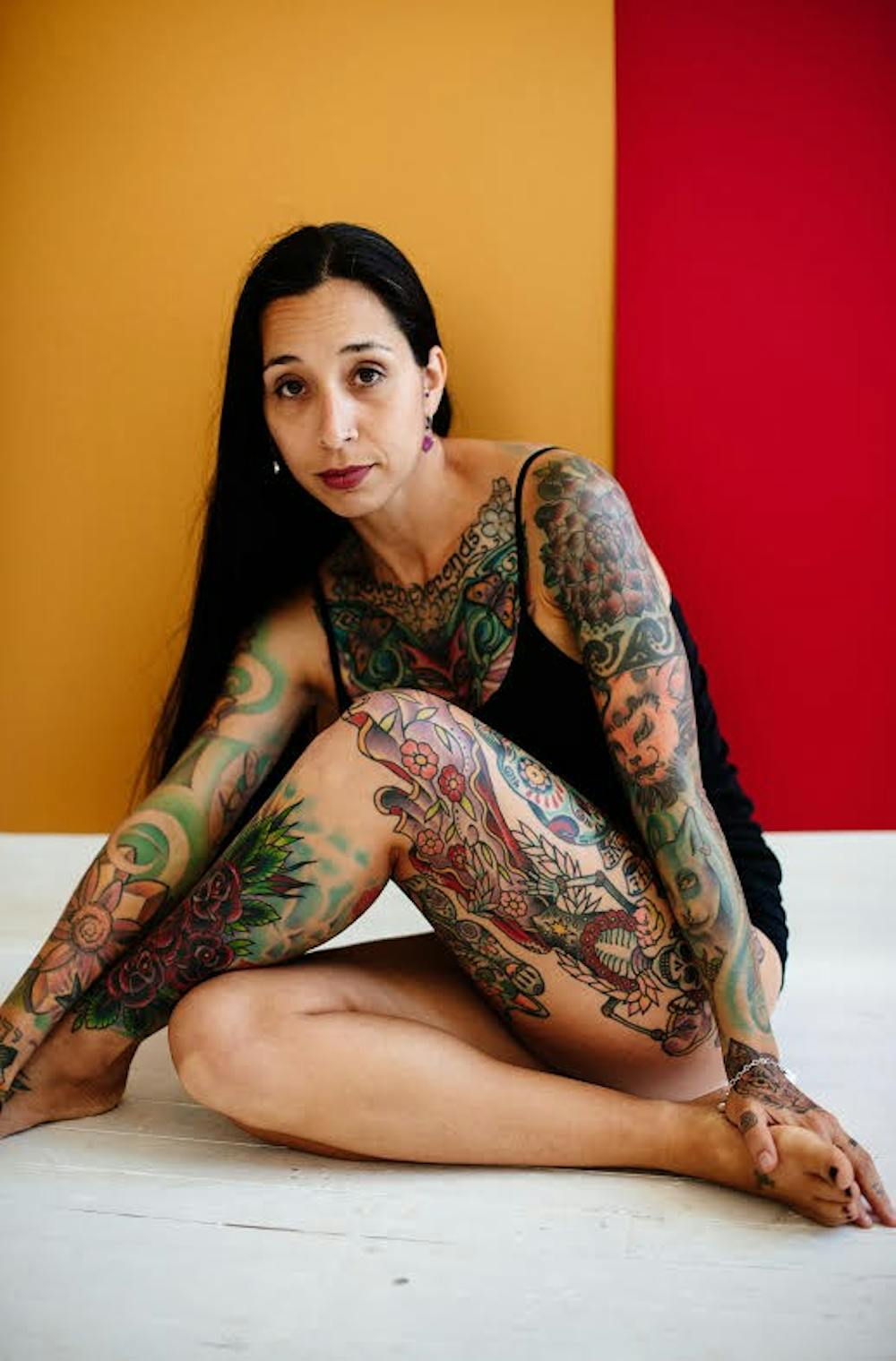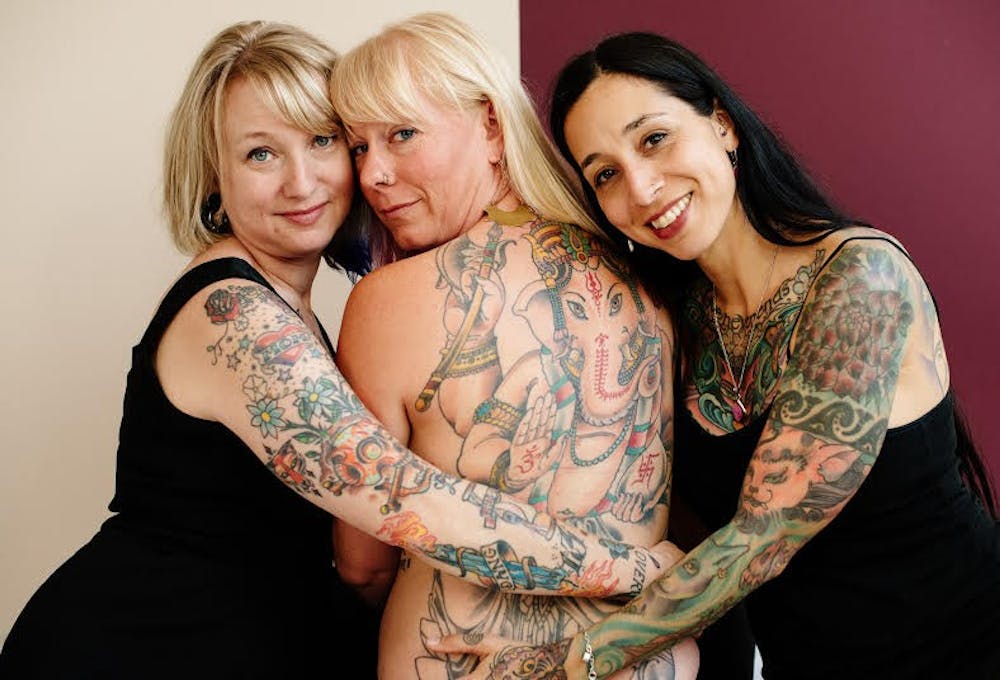Shaina Bray, a model for the “Our Bodies, Our Choices” calendar of tattooed women, remembered feeling stigmatized during her divorce hearing for having tattoos and piercings.
“My hair was dyed bright red, and I have tattoos and piercings," Bray said. "Someone who had met the judge told me to take the piercings out before going to the hearing.”
Bray said that the hearing was held in Bedford, IN, and the judge was known for being traditional.
She said she felt the judge looked at her piercings and decided she was troubled or somewhat lesser than her clean-cut ex husband.

Alicia Suarez, associate professor of sociology and director of women's, gender and sexuality studies at Depauw University, said after an interview at a college in North Carolina she was discriminated against because of her tattoos.
“The department chair told me that he wanted to offer me the position, but that he would need to talk to the Dean about my tattoos first, “ Suarez said.
The chair of the department felt that the cultural climate at the college would require him to double check, Suarez said. She also said she did not take the job because of this interaction.
Bray said that she remembered getting her first tattoo right after moving out of a homeless shelter where she and her two kids were staying.
“I got a lotus mandala because when we moved out, I felt so empowered and strong, “ Bray said. “The beautiful lotus flower grows from the mud, and I felt that way when we left the shelter.”
Upon leaving the shelter, Bray said she signed up for college, which was something she had been told she could never do.
“When I look at that tattoo, I remember what we went though, especially when I’m feeling frustrated or down,” Bray said. “I remember things could always be worse and that we got through being at the shelter.”
Bray and Suarez both said they do not know how many tattoos they have because they have begun to blend into each other.
Bray said her favorite tattoo is a phoenix tattoo on her leg.
“I got it after I had a miscarriage," Bray said. "It is a reminder of that for me, since the phoenix represents rising from the ashes."
The phoenix tattoo fills a space from her hip to her knee. Bray said it took three hours of work from the tattoo artist.
“I meditate while I am getting tattoos,” Bray said. “I like for it to be quiet, and I don’t want anyone to talk to me.”
Bray said she thinks body modification is becoming more acceptable to people, but people still judge, especially when they meet a person who is heavily tattooed.
“There are too many stigmas behind all these things that are pretty much expressions,” Bray said.
Bray said she hopes society changes because having tattoos does not mean you sell drugs, have given up on life, don’t want a professional job, or have been in prison.
“I hope that, eventually, we get to a place where people are not judged based on tattoos or piercings or whatever they decide to do to change their bodies,” Bray said. “I hope it’s more acceptable, as with so many other things that I feel like need to be accepted.”




